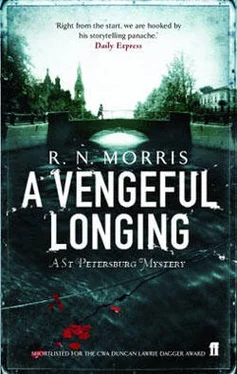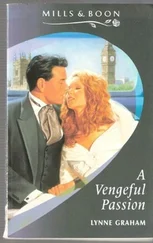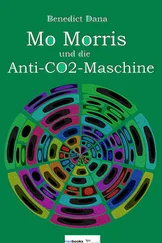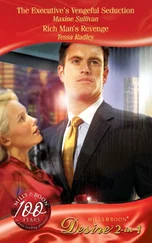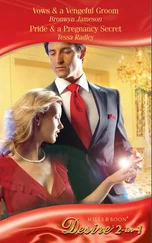R. Morris - A Vengeful Longing
Здесь есть возможность читать онлайн «R. Morris - A Vengeful Longing» весь текст электронной книги совершенно бесплатно (целиком полную версию без сокращений). В некоторых случаях можно слушать аудио, скачать через торрент в формате fb2 и присутствует краткое содержание. Год выпуска: 2008, ISBN: 2008, Издательство: Faber & Faber, Limited, Жанр: Исторический детектив, на английском языке. Описание произведения, (предисловие) а так же отзывы посетителей доступны на портале библиотеки ЛибКат.
- Название:A Vengeful Longing
- Автор:
- Издательство:Faber & Faber, Limited
- Жанр:
- Год:2008
- ISBN:9780571232536
- Рейтинг книги:3 / 5. Голосов: 1
-
Избранное:Добавить в избранное
- Отзывы:
-
Ваша оценка:
- 60
- 1
- 2
- 3
- 4
- 5
A Vengeful Longing: краткое содержание, описание и аннотация
Предлагаем к чтению аннотацию, описание, краткое содержание или предисловие (зависит от того, что написал сам автор книги «A Vengeful Longing»). Если вы не нашли необходимую информацию о книге — напишите в комментариях, мы постараемся отыскать её.
A Vengeful Longing — читать онлайн бесплатно полную книгу (весь текст) целиком
Ниже представлен текст книги, разбитый по страницам. Система сохранения места последней прочитанной страницы, позволяет с удобством читать онлайн бесплатно книгу «A Vengeful Longing», без необходимости каждый раз заново искать на чём Вы остановились. Поставьте закладку, и сможете в любой момент перейти на страницу, на которой закончили чтение.
Интервал:
Закладка:
He looked up and saw the angel on top of the towering Alexander Column. ‘Come down from there if you have something to say to me,’ shouted Ferfichkin. But the heaven-distracted figure ignored him.
Ferfichkin stumbled on; the stone waters of the Palace Square grew turbulent and treacherous. The Winter Palace, recently painted red ochre, shimmered like a distant shore; the sky’s soft glow seemed to draw the substance from it and from everything around it. He looked again at the angel, almost fearfully now, as if he expected the statue to take flight, drawn by the weightless night. A leaden feeling gripped his heart, halfway between the dread of belief and the terrible loneliness of atheism.
The only thing left to him was the vodka. But it wasn’t long before he had drained that. A misery, a grief worse than the loss of his God, voided him.
His listing trajectory took him into the arms of passing strangers, who pushed him away in disgust. ‘Have I never believed, then?’ he demanded of them.
From one to the other he was passed, in a wilder mazurka than any danced inside the palace ballrooms.
‘In that case, what was it all for?’ But at the same time as he formed the question, the answer came to him, an answer he struggled to suppress, overlaying protestations of his piety: ‘No one, not even the holy brothers who clothe themselves in the Scriptures, the monks of Optina Pustyn, no one has immersed themselves in the word of God more than I. The hours of my life I have given to that book! And why? If I did not believe? You cannot tell me I do not believe,’ he shouted into the face of a cavalry officer who evidently had no such intention.
He hurried from the square on to Millionnaya. Between the gaudy millionaires’ palaces and the stinking Moika, a pack of wild dogs roamed. The dogs were of all sizes, the products of unimaginablemiscegenations, absurdly mismatched as a group, and yet bound together by some instinct of canine community. Restless and excitable, they sniffed the air and each other’s arses, nipping, yelping, circling, the smallest ones somehow seeming to be the most aggressive. No doubt they were animated by hunger. However, their banding together against it, their ragged solidarity, amazed him. He almost envied them. Ferfichkin had known hunger. But it had never occurred to him to seek its alleviation by associating with others in the same plight. ‘It’s every man for himself, ’ he shouted at the dogs, as if remonstrating with them. ‘Dog eat dog!’ It was a command, or at least an encouragement.
Ferfichkin stood and swayed. The pack of dogs paid him no regard but ran howling up Millionnaya towards the Field of Mars. He felt an instant nostalgia at their departure and realised in that moment how alone he was. He hungered after company, even though the whole basis of his life was self-sufficiency.
‘No man is my master,’ he shouted up the empty street, after the baying dogs. ‘God is my master.’ But the words rang hollow.
He set off at a run after the dogs; somehow it seemed important not to let them out of his sight. He was chasing not a pack of wild dogs, but the idea of kinship.
The idea took him across the empty parade ground, where the unseen ghosts of dead battalions were marshalled, into the Summer Garden.
As he entered the enclosure he had the sense of crossing over into a place of magic and awe, a grotto. The dumbstruck, sightless men and women that lined the criss-crossing avenues slowed his step and cowed him. Naked allegories, fabulous pagan beings, they inspired an irrational dread in him. He had a sense of them moving behind his back, but whenever he turned, they were frozen in their original positions, the lyre unplucked, the sweep of concealing drapery still miraculously in place.
In amongst the statuary, people of flesh and blood moved, a congregation of sinners, for the most part eschewing the formal paths, the women undoubtedly whores, the men drunks. Ferfichkin slurringly repeated the words of the Psalm: ‘I have hated the company of evildoers.’ There was laughter from the trees. He threw out a hand towards it and stumbled on, his step unsteady as much from exhaustion as from the drink now.
He lurched from statue to statue, passed now between a different set of strangers, who showed their disgust by keeping their stony heads averted from him.
He could no longer see the dogs but the din of their hunt was louder than ever.
He staggered into one of the sinners, who had wandered on to the path.
Ferfichkin looked into this man’s face. ‘You!’ he cried.
The man pushed him away, with the same disgust that those on Millionnaya had shown. Ferfichkin fell to the ground. The man stepped over him and went on his way.
Ferfichkin did not stir. No one troubled themselves about the drunk fallen to the ground. No doubt they had themselves slept in places just as strange.
Morning came more stealthily than usual. With infinite gradation, the soft etiolated light became emboldened. The old drunk was still there. He had not changed his position. The politseisky who found him couldn’t rouse him and when he turned the man over, he saw why.
The fine, long handle of a bladed weapon protruded from a circle of blood on the man’s chest, exactly where you might estimate his heart to be.
2
The day grew heavy with the humidity of a storm held back. The sweltering pressure affected the flies in Porfiry’s room badly. They became reckless, crazed, hurling themselves at the panes of the window and into the faces of the men who came and went. As for the men, a short-tempered impatience characterised their dealings as they awaited barometric release. The morning was a series of obstacles they had to move through.
Virginsky, for whom a desk had been installed in the corner by the window, continued to sort through the records of the confectioner’s, comparing the names there to those he had gleaned from the school lists. But it was hard to concentrate, not just because of the heat and the intrusive buzz of the flies around his head. Frequently he would look up from his task, peering out of the window in anxious expectation. Whenever there was a knock at the door of the chambers, he would start in his seat, turning a drained and apprehensive face to see who entered. Invariably, it was one of the clerks with correspondence for Porfiry; Virginsky would bow his head once more over the ledger book, relieved for the moment, only to nourish his apprehension for a while longer.
‘How are you getting on?’ The sound of Porfiry’s voice suddenly so close startled him.
‘Nothing so far,’ said Virginsky, his voice unexpectedly tremulous. He waited for Porfiry to go but the magistrate remained silently at his shoulder. Virginsky turned his head and looked up. The other man’s expression was mildly distracted.
‘Porfiry Petrovich?’
Porfiry seemed taken aback by the brusqueness of Virginsky’s tone. He creased his brow.
‘May I make an observation?’
Porfiry nodded.
‘This method strikes me as inherently flawed.’
‘Indeed?’
‘I would go so far as to say that it is a waste of my time. A fruitless exercise.’
‘I regret that you find it so.’
‘For one thing, can we really suppose that the murderer was so foolish as to give his real name to the shop from which he bought the chocolates he intended to poison? For another, not every customer who shops at Ballet’s will have his name entered here. These books only record those who have accounts, or place orders. The casual transaction, paid for in cash, will leave no trace. Is that not the case?’
Porfiry’s eyelashes batted away Virginsky’s objections. ‘We can make no assumptions. We must investigate every possibility, however remote. This search may turn up a name, or it may not. One thing is certain though: if we do not look, we will not find. A criminal investigation does not proceed by guesswork, but by painstaking, methodical examination of all available evidence.’
Читать дальшеИнтервал:
Закладка:
Похожие книги на «A Vengeful Longing»
Представляем Вашему вниманию похожие книги на «A Vengeful Longing» списком для выбора. Мы отобрали схожую по названию и смыслу литературу в надежде предоставить читателям больше вариантов отыскать новые, интересные, ещё непрочитанные произведения.
Обсуждение, отзывы о книге «A Vengeful Longing» и просто собственные мнения читателей. Оставьте ваши комментарии, напишите, что Вы думаете о произведении, его смысле или главных героях. Укажите что конкретно понравилось, а что нет, и почему Вы так считаете.
